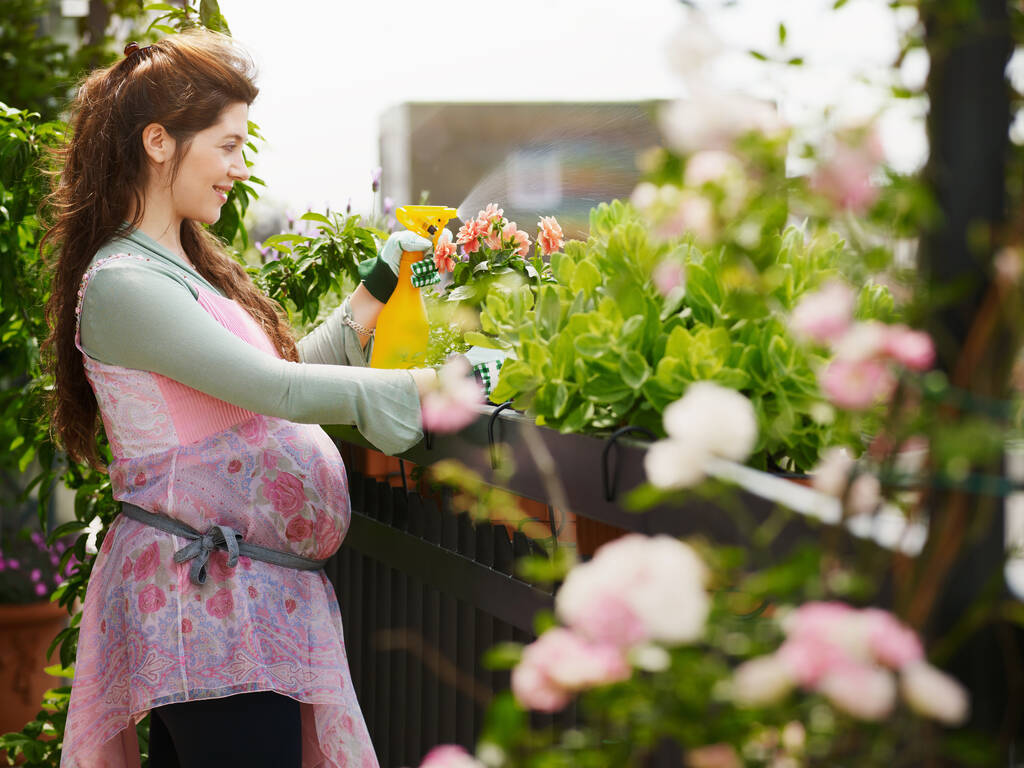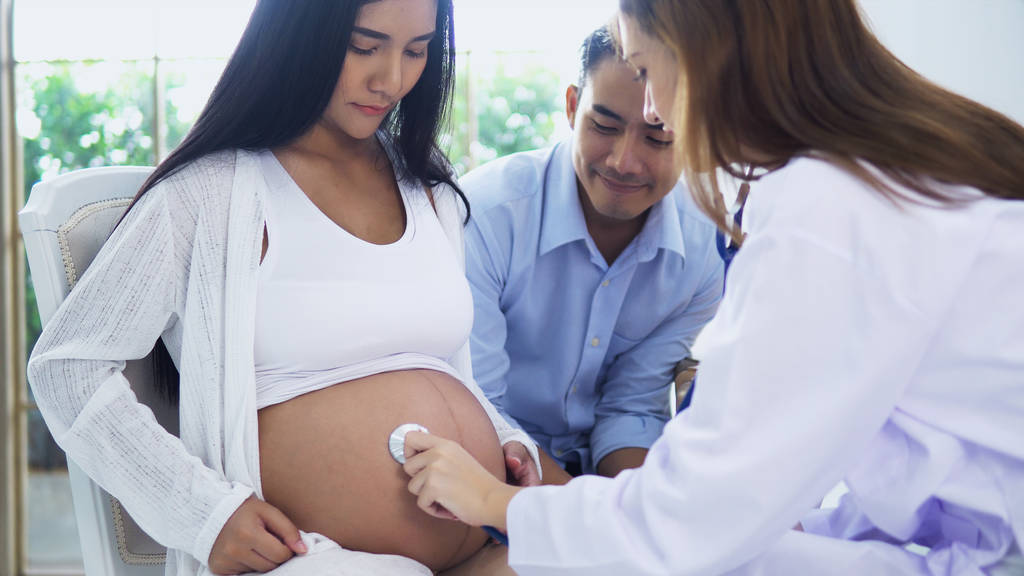Discover the potential risks and precautions to consider when gardening during pregnancy.
What Are the Risks of Gardening During Pregnancy?
Gardening is a popular hobby that brings joy and relaxation to many people. However, if you’re pregnant and have a green thumb, you may be wondering if gardening is still safe for you and your baby. While your enthusiasm for nurturing plants and watching them grow is commendable, it’s important to understand the potential risks involved in gardening during pregnancy. So before you put on your gardening gloves and grab that trowel, let’s dive into the world of pregnancy and physical activities.

Understanding Pregnancy and Physical Activities
During pregnancy, there are certain changes happening in your body that may affect what physical activities are safe for you. It’s crucial to consult with your healthcare provider to determine what level of activity is suitable for you. They can provide tailored advice based on your unique circumstances.
Pregnancy is a beautiful and transformative time in a woman’s life. As your body nurtures and grows a new life, it’s important to take care of yourself both physically and emotionally. Engaging in regular physical activities can play a significant role in promoting a healthy pregnancy.
The Impact of Physical Activities on Pregnancy
Engaging in moderate exercise during pregnancy can have numerous benefits. It can help maintain a healthy weight, reduce pregnancy discomfort, and even improve your mood. Exercise releases endorphins, which are known as “feel-good” hormones, helping to combat stress and anxiety.
Staying active during pregnancy can also improve your cardiovascular health, strengthen your muscles, and enhance your overall stamina. It can prepare your body for the physical demands of labor and make the postpartum recovery process smoother.
However, it’s important to avoid activities that pose a risk of falling, abdominal trauma, or excessive strain. High-impact sports, contact sports, and activities that involve sudden movements or jolts should be avoided. It’s always best to opt for low-impact exercises that are gentle on your joints and minimize the risk of injury.
The Role of Gardening as a Physical Activity
Gardening, with its combination of light-to-moderate physical effort and exposure to nature, can be a wonderful way to stay active during pregnancy. It allows you to connect with the earth, nurture plants, and enjoy the outdoors. The rhythmic movements involved in gardening, such as digging, planting, and weeding, can provide a gentle workout for your muscles.
Not only does gardening provide physical benefits, but it also offers mental and emotional advantages. Spending time in nature has been shown to reduce stress levels and improve overall well-being. The act of caring for plants and watching them grow can be incredibly fulfilling and therapeutic.
However, like any physical activity, gardening carries potential risks that need to be considered. It’s important to be mindful of your body’s limitations and avoid overexertion. Take frequent breaks, stay hydrated, and listen to your body’s signals. If you experience any discomfort or pain, it’s best to stop and rest.
Additionally, be cautious of exposure to chemicals and toxins commonly found in fertilizers, pesticides, and herbicides. Opt for organic gardening practices and use natural alternatives whenever possible to minimize any potential harm to you and your baby.
In conclusion, staying active during pregnancy is important for both your physical and mental well-being. Consult with your healthcare provider to determine what activities are safe for you, and consider incorporating gentle exercises like gardening into your routine. Remember to prioritize your safety and listen to your body’s needs throughout your pregnancy journey.
Potential Risks of Gardening During Pregnancy
While gardening can be a fulfilling activity, it’s important to be aware of the potential risks involved when you’re pregnant. Let’s take a closer look at some of these risks:
Exposure to Harmful Chemicals
When it comes to gardening, you may use fertilizers, pesticides, or herbicides to maintain the health of your plants. However, some of these substances may contain harmful chemicals that could pose risks to your developing baby. It’s best to avoid or minimize the use of these chemicals during pregnancy.
Chemicals such as glyphosate, commonly found in herbicides, have been linked to adverse pregnancy outcomes. Studies have shown that exposure to glyphosate during pregnancy may increase the risk of preterm birth, low birth weight, and developmental issues in children. Additionally, certain pesticides have been associated with an increased risk of birth defects and neurodevelopmental disorders.
It’s important to read labels carefully and choose organic or natural alternatives whenever possible. Consider using compost and natural fertilizers to nourish your plants, and opt for pest control methods that are safe for both you and your baby.
Risk of Physical Injury
Gardening involves physical exertion, which increases the risk of falls, strains, or injuries. Pregnant women may be more prone to accidents due to changes in balance and the relaxin hormone, which loosens ligaments. It’s essential to take precautions and avoid activities that require excessive bending, lifting, or reaching.
When gardening during pregnancy, it’s advisable to use tools with long handles to minimize the need for bending. Take breaks frequently and listen to your body’s signals to avoid overexertion. Consider enlisting the help of a partner or family member for tasks that require heavy lifting or strenuous effort.
Furthermore, be cautious when navigating uneven terrain or slippery surfaces in your garden. Ensure that pathways are clear of obstacles and use non-slip footwear to reduce the risk of falls.
Infections and Diseases from Soil and Plants
Gardening often involves close contact with soil and plants, which can harbor bacteria, parasites, or fungi. These microorganisms may pose a risk of infection, especially if proper hygiene practices are not followed. Pregnant women have a weakened immune system, making them more susceptible to certain infections.
To minimize the risk of infections, it’s crucial to practice good hygiene while gardening. Wash your hands thoroughly with soap and water after handling soil or plants. Consider wearing gloves to protect your skin from potential pathogens and avoid touching your face or mouth while gardening.
In addition, be cautious when handling compost, as it may contain harmful bacteria such as E. coli or Salmonella. Pregnant women should avoid direct contact with raw manure and ensure that compost is fully decomposed before using it in the garden.
It’s also important to be aware of plants that may cause skin irritation or allergic reactions. Certain plants, such as poison ivy or stinging nettle, can cause rashes or discomfort. Familiarize yourself with these plants and take necessary precautions, such as wearing protective clothing or gloves, to avoid contact.
By following these guidelines and taking necessary precautions, you can continue to enjoy the benefits of gardening while minimizing potential risks to yourself and your baby.
Safe Gardening Practices for Pregnant Women
Now that you’re aware of the potential risks, let’s explore some precautions and safe practices you can adopt to continue enjoying your gardening hobby while pregnant:
Gardening is not only a great way to relax and connect with nature, but it can also provide numerous health benefits for pregnant women. However, it’s important to prioritize safety and take certain precautions to ensure a healthy and enjoyable gardening experience.
Using Protective Gear
When you’re pregnant, your body becomes more sensitive to various substances and allergens. Wearing gloves, long sleeves, and pants can help protect your skin from potential irritants, allergens, or harmful substances present in the garden. It’s also crucial to use a hat and sunscreen to shield yourself from the sun’s harmful rays, as pregnant women are more prone to skin discoloration and sunburn.
Additionally, consider using a face mask if you’re working with dusty or chemical-laden materials, such as fertilizers or pesticides. This will help prevent inhalation of harmful particles and keep your respiratory system protected.
Safe Handling of Gardening Tools
Gardening often involves the use of various tools, and it’s important to handle them with care to avoid any unnecessary strain on your body. Be mindful of using appropriate tools that minimize strain on your joints. Opt for lightweight tools with ergonomic handles to reduce the pressure on your wrists, hands, and arms.
Remember to take frequent breaks and avoid excessive lifting, especially when dealing with heavy pots or bags of soil. Pregnancy hormones can make your ligaments more relaxed, increasing the risk of strains or sprains. If possible, ask for assistance when lifting heavy objects to avoid any potential injuries.
Proper Hygiene and Cleanliness
Hygiene plays a crucial role in ensuring a safe gardening experience for pregnant women. After spending time in the garden, it’s important to wash your hands thoroughly with soap and water to remove any potential contaminants from the soil or plants. This will help minimize the risk of transferring harmful bacteria or parasites to yourself or your unborn baby.
Avoid touching your face or mouth while gardening to minimize the risk of ingesting harmful microorganisms. If you accidentally come into contact with any toxic plants or chemicals, make sure to wash the affected area immediately and seek medical advice if necessary.
Furthermore, it’s recommended to wear gardening gloves when handling soil or compost to reduce the risk of contracting infections caused by bacteria or fungi. These gloves will act as a barrier between your skin and the potentially harmful microorganisms present in the soil.
By following these safe gardening practices, you can continue to enjoy your gardening hobby while pregnant without compromising your health or the health of your baby. Remember to listen to your body and take breaks whenever necessary. Happy gardening!
Alternatives to Traditional Gardening During Pregnancy
If you’re concerned about the potential risks associated with traditional gardening, there are alternative options you can explore:
Indoor Gardening Options
Consider cultivating an indoor garden using potted plants or herbs. This allows you to create a green oasis within the comfort of your home while minimizing exposure to outdoor hazards.
Community Gardening and Shared Responsibilities
Join a community garden where you can share gardening responsibilities and knowledge with others. This way, you can still enjoy the benefits of gardening while reducing the physical strain and potential risks on your own.
Consultation with Healthcare Professionals
Throughout your journey of pregnancy, it’s crucial to maintain open communication with your healthcare provider. They can provide personalized guidance and support based on your specific needs and circumstances.

When to Seek Medical Advice
If you experience any unusual symptoms, discomfort, or concerns while gardening or engaging in any physical activity during pregnancy, reach out to your healthcare provider. They can help assess the situation, provide appropriate advice, and address any potential risks.
Regular Check-ups and Monitoring
Attending regular prenatal check-ups ensures that your healthcare provider can monitor your pregnancy’s progress. Make sure to discuss your gardening activities during these visits to ensure that everything is going smoothly.
Gardening can be a source of joy and fulfillment, even during pregnancy. By understanding the potential risks involved, taking necessary precautions, and seeking guidance from healthcare professionals, you can continue to indulge your green thumb while safeguarding your and your baby’s well-being. So, go ahead, embrace the wonders of gardening and let nature flourish alongside your journey of motherhood!



